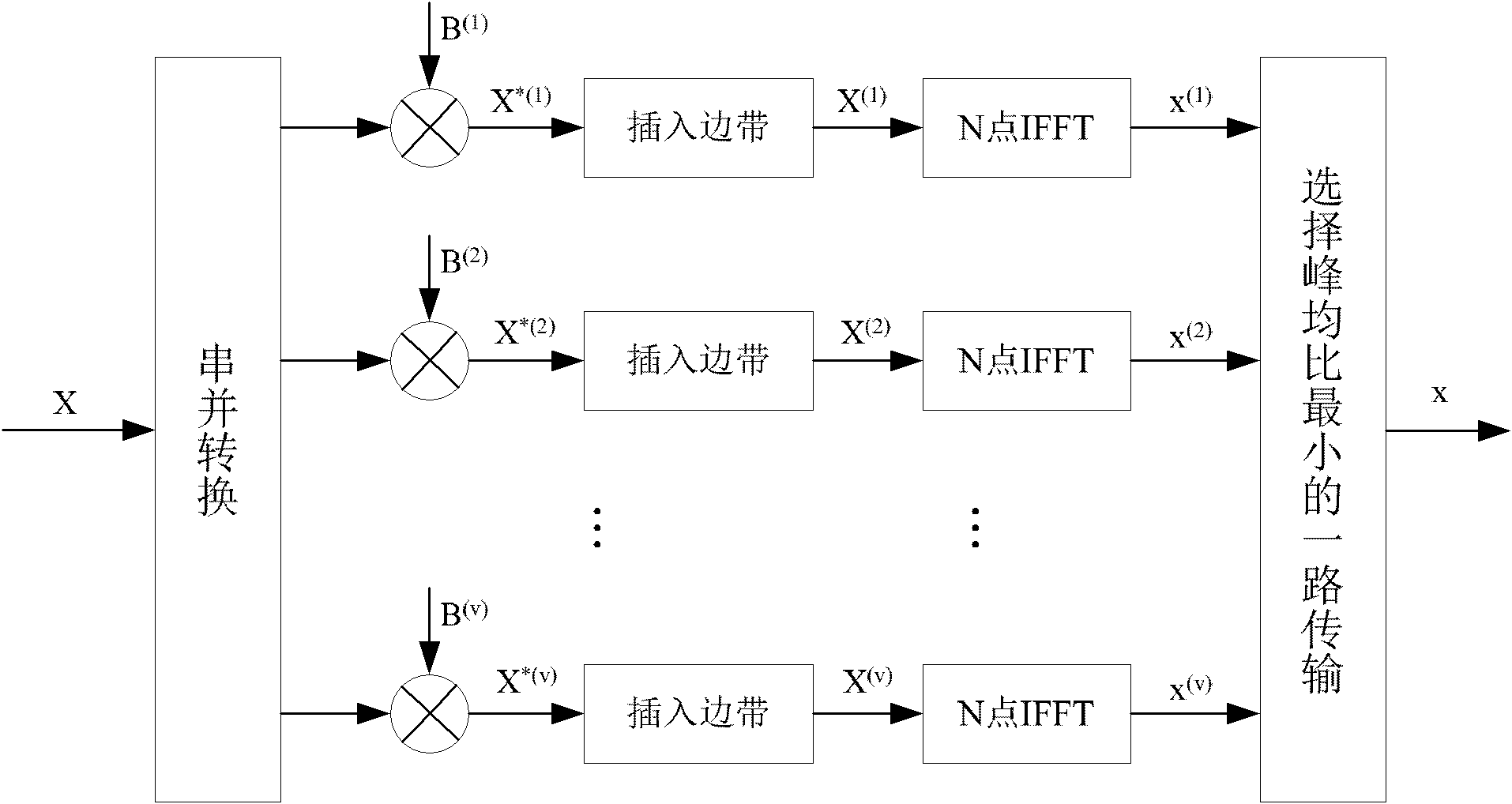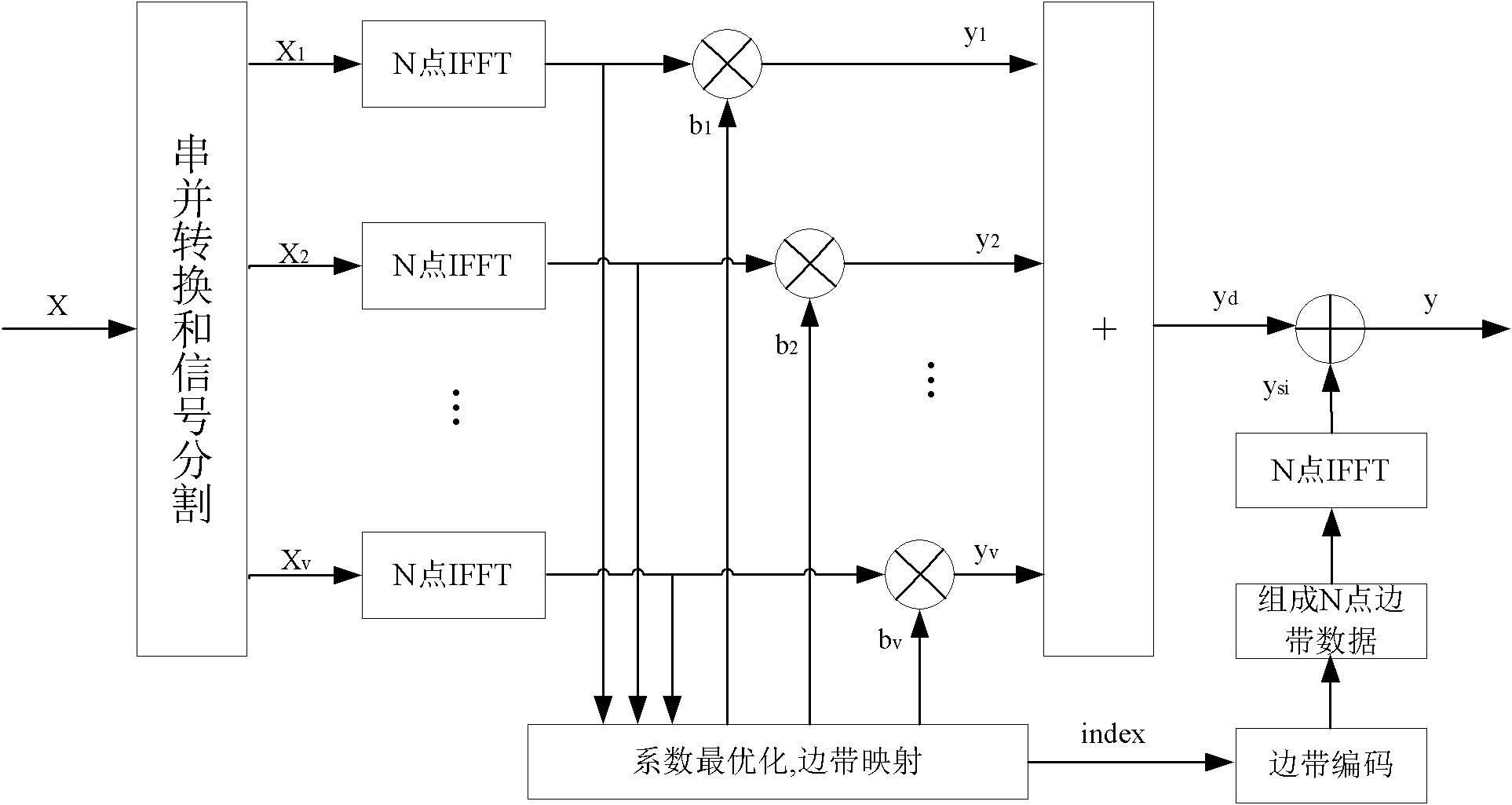Method for reducing peak to average power ratio of OFDM signal
A signal peak-to-average ratio and peak-to-average ratio technology, applied in multi-frequency code systems and other directions, can solve the problems of complex methods, increased receiver costs, and low receiver costs.
- Summary
- Abstract
- Description
- Claims
- Application Information
AI Technical Summary
Problems solved by technology
Method used
Image
Examples
Embodiment Construction
[0025] The present invention will be further described below in conjunction with the accompanying drawings and specific embodiments.
[0026] The following briefly introduces several basic methods of SLM, PTS, direct limiting and oversampling limiting, and then simulates and analyzes their cascading.
[0027] 1. Selected mapping (selected mapping, SLM)
[0028] The basic idea of Selective Mapping (SLM) is to generate V OFDM symbols that contain the same information and are independent of each other, and then choose to make the time domain signal x (v) The set of transmissions with the smallest PAPR. The block diagram of SLM implementation is as follows: figure 1 shown.
[0029] The key to SLM is how to generate multiple OFDM symbols representing the same information, the specific method is as follows:
[0030] Define V different vectors: v=1,...,V
[0031] in is the rotation factor, also known as the weighting factor, n=0,...,N-1, uniformly distributed in [0, 2π]....
PUM
 Login to View More
Login to View More Abstract
Description
Claims
Application Information
 Login to View More
Login to View More - R&D
- Intellectual Property
- Life Sciences
- Materials
- Tech Scout
- Unparalleled Data Quality
- Higher Quality Content
- 60% Fewer Hallucinations
Browse by: Latest US Patents, China's latest patents, Technical Efficacy Thesaurus, Application Domain, Technology Topic, Popular Technical Reports.
© 2025 PatSnap. All rights reserved.Legal|Privacy policy|Modern Slavery Act Transparency Statement|Sitemap|About US| Contact US: help@patsnap.com



